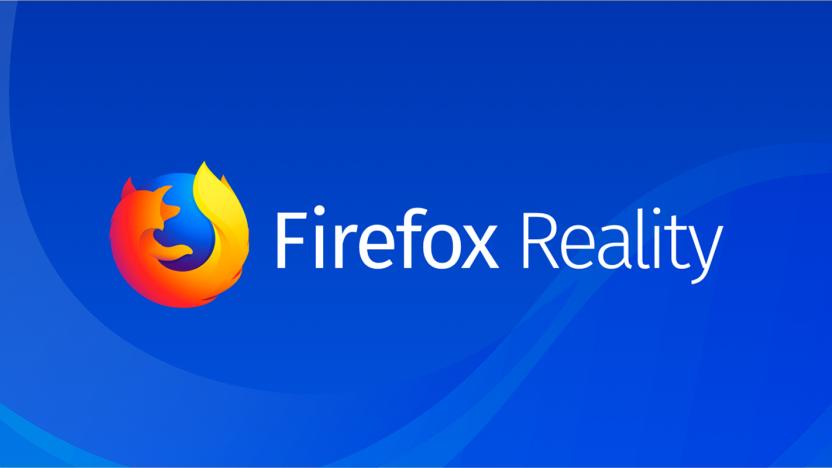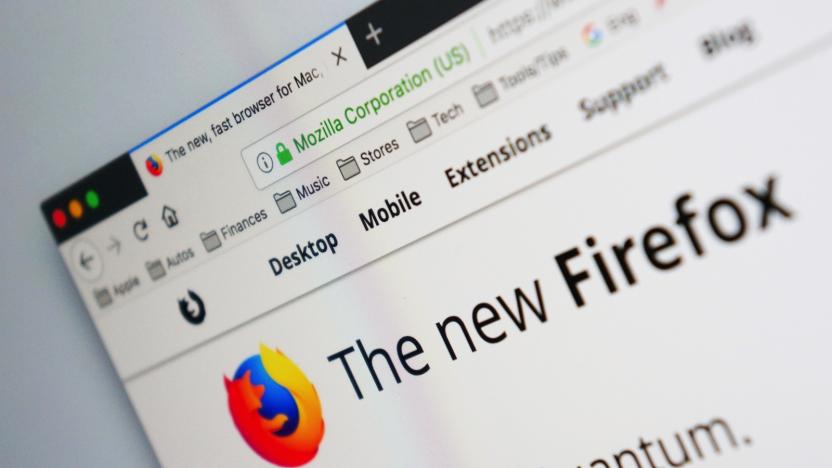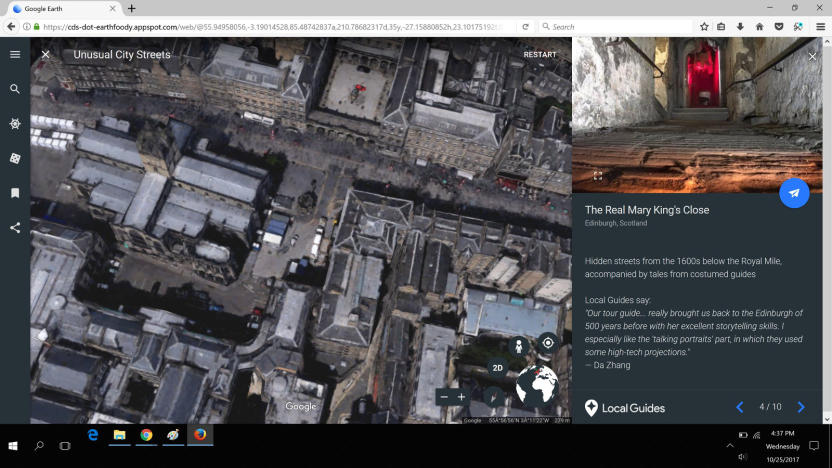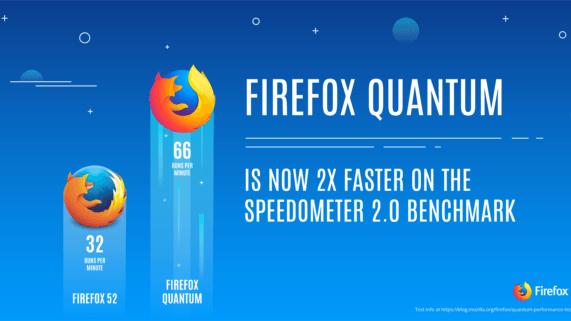firefox
Latest

Mozilla's approach to sponsored content aims to protect privacy
For a few months now, Mozilla and Pocket have been testing a new initiative to bring users a high-quality personalized experience while also protecting their privacy. Today, Mozilla announced that their experiment has been a success, and now they are expanding it to all Firefox 60 users in the US.

Mozilla activates Tracking Protection by default for Firefox on iOS
Mozilla has a handful of updates for Firefox on iOS, privacy-minded and otherwise. Now, Tracking Protection is turned on by default rather than being an opt-in bit buried in the settings menu. You can set specific filters so retail sites (or others) can or can't track you, according to the Mozilla blog. The company says that the Tracking Protection is the same tech that's used in Firefox Focus on mobile and the desktop browser.

Web standard brings password-free sign-ins to virtually any site
Tech companies have been trying to do away with web passwords for years, but now it looks like they've reached a key milestone. The FIDO Alliance and W3C have launched a Web Authentication standard that makes it easier to offer truly unique encryption credentials for each site. That, in turn, lets you access virtually any online service in a PC browser through password-free FIDO Authentication, not just specific services. You can continue to use familiar methods like fingerprint readers, cameras and USB keys, and it can serve both in place of and in addition to passwords.

Avast claims its secure browser is 30 percent faster than yours
Avast has updated its browser to give users greater control over their online privacy. According to the company, its renamed Avast Secure Browser (formerly SafeZone) is designed to plug the security gaps that result from users' misplaced protection expectations. Features such as Stealth Mode, HTTPS Encryption, anti-tracking and anti-fingerprinting have been designed to account for the 69 percent of UK consumers who believe standard private-browsing modes will anonymize their identity, and the 81 percent who believe their browser would alert them to web-based threats, such as malicious cryptomining and extensions.

Mozilla is making a 'mixed reality' version of Firefox
Virtual and augmented reality hasn't taken off the way some people had hoped. Still, it's a growing market that Mozilla wants to support with a bespoke version of Firefox. The new browser, called Firefox Reality, will work on a variety of VR, AR and so-called "mixed reality" hardware. There's no word on a release date, though, or what the experience will look like. Mozilla has given a few clues, however; it will be open-source, for instance, and truly cross platform, unlike some of its rivals. It should also be fast, like Firefox Quantum, and offer better protection than native apps.

A new Firefox add-on limits Facebook tracking
It's safe to say that Facebook's treatment of its users' personal data is front and center, with the recent revelations about Cambridge Analytica. Many users are going as far as to stop using the social network altogether. But Mozilla has another option: It's created an add-on called Facebook Container for its Firefox browser that isolates Facebook from the rest of your browsing activity. That way, the social network can't track what you're doing elsewhere on the internet.

Firefox can block pesky site notification requests
Website push notifications can be helpful. The way you're asked to enable those notifications? Not so much -- the constant requests can drive you up the wall when you're just trying to check the latest news. Mozilla is coming to your rescue. Its newly released Firefox 59 for the desktop gives you the option to block notification requests. You can also tell the browser to block requests to use your hardware or location, for that matter. You'll have to dig deep into the settings (it's under permissions) to turn these features off, but they should make your web surfing relatively hassle-free.

Grammarly patches bug that could expose everything you write (update: not everything)
Grammarly, a copyediting app/extension for Chrome and Firefox that points out typos and grammatical mistakes, had a major bug that allowed any website you visit to log into your account and read everything you ever wrote. It made all your documents, history, logs, tweets and blog posts vulnerable to high-tech snoops. Google's Project Zero, which unearths and tracks vulnerabilities and reports them to software-makers, revealed the bug on February 2nd. Thankfully, the Grammarly team has quickly patched it up and has already auto-updated the program used by over 20 million users.

Amazon’s Fire TV devices add web browsers to access YouTube
Browsing the web on the big screen in your living room isn't something many of us are clamoring for. Still, Amazon already added its own Silk browser to select Fire TV devices last month, but is expanding its availability to all Fire TV gadgets today. It's adding Firefox as a second web browsing option, too. Both browsers are available on every Fire TV device in all countries they are sold in starting today -- just in time too, since the browsers help owners get around Google's YouTube block.

Firefox faces backlash for auto-installing 'Mr. Robot' add-on
A curious add-on called "Looking Glass" started popping up on Firefox for a number of users this past week -- even if they didn't give the browser permission to install it. Due to its nebulous nature and creepy description that only said "MY REALITY IS JUST DIFFERENT FROM YOURS," people took to social networks to ask other users and air their concerns. Turns out Looking Glass isn't spamware, malware or any of the sort: it's a promotional campaign for Mr. Robot, a TV series about the life of a cybersecurity-engineer-slash-hacker.

Mozilla and Yahoo sue each other over default search engine deal
Deals between web browser suppliers and search engine providers are big business. For Mozilla, agreements with search engines have brought in as much as US$300 million a year, which accounts for 90 percent of its income. So the stakes are high amid the latest tech company quarrel, which sees Mozilla end its partnership with Yahoo due to claims it hadn't been paid. Neither party is happy with the situation, so they're suing each other.

Firefox will soon flag sites that have been hacked
Firefox is having a good run right now, having just released its much speedier and better-looking Quantum browser. It's now working on a new feature that security fans are bound to like: It will warn you if you're visiting a site that has suffered a data breach. Firefox is working on the feature in collaboration with "Have I Been Pwned," the popular site that can check your email and tell you if your credentials have been stolen by hackers.

This week's tech titan 404s | Engadget Today
If you tend to work in Google Docs, you already know about it being down for hours on Wednesday, but only AT&T users had the pleasure of realizing their phones also didn't work for a good portion that same day. To fix it, AT&T told users to restart their phones, and that it might take multiple restarts to get it working again. T-Mobile, never one to miss a diss, jumped right into the same Twitter thread to offer frustrated users a chance to switch carriers. Ouch.

Firefox Quantum is ready to speed up your web browsing
Did you ditch Firefox a while ago after feeling that it was slowing down compared to rival browsers like Chrome? Mozilla is determined to win you back. As promised, it just released Firefox Quantum (aka Firefox 57) -- and it promises to be much faster than you're used to. The company claims its newest browser is over twice as fast as the version from 6 months ago thanks to both a new, multi-core CSS engine, tab prioritization and the elimination of bugs that were weighing the software down. Whether or not it's actually faster depends on the sites you're visiting, but it does appear snappy in some quick testing.

Google Earth is almost ready to work on Firefox
Earlier this year, Google Earth finally became accessible on a browser, giving you a way to virtually explore our world without having to install its application. At the moment, though, it will only work if you're using Google Chrome, something its developers are working hard to change: their official Twitter account has just revealed that they're making good progress on bringing the web-based app to Firefox.

Firefox can add web apps to your Android home screen
Firefox is making it easier for Android users to navigate the mobile web with Web App Manifest support, which will ship with Firefox 58 for Android. The feature supports Progressive Web Apps (PWA), the app-like interfaces displayed within mobile web browsers, and will allow users to add them to their home screens so they can be accessed by a single touch (rather than via web search or URL input).

LastPass add-on beta prepares for upcoming changes in Firefox
Mozilla has some big changes in store for its next browser release, Firefox 57, on November 14th. It will introduce quite a few new features, including Firefox Quantum, which is twice as fast as Firefox was a year ago and 30 percent more RAM efficient as compared to Google Chrome. One of the changes is the switch to WebExtension, which is an API that allows for development of extensions across browsers. LastPass, the popular password management system, has been toiling away to make their add-on work on the new system. Today, the company released a public beta for use in Firefox that's compatible with WebExtension. LastPass also announced that the final version will be available when Firefox 57 makes its debut. Beta users will automatically be transitioned to the final release when that happens.

Allo web chat now works in browsers other than Chrome
When Google brought its Allo chat app to the web, it only supported Chrome. That partly defeats the point of an app-independent client, doesn't it? Thankfully, Google agrees. It just expanded Allo's web support to get it running on Firefox, Opera and iOS devices (including Chrome and Safari). You do have to start by scanning a QR code on the desktop using your phone, which is more than a little unwieldy, but this does mean you don't have to live within Google's software ecosystem just to avoid a native app. No, this probably won't get you to ditch Hangouts or another messaging app, but it does open the door to those who otherwise wouldn't give it a shot.

Firefox Quantum beta promises to double your browser speeds
After announcing plans for Project Quantum late last year, Mozilla has now launched its overhauled Firefox in beta stage, making it an increasingly imminent challenge to Chrome. And it's a very feasible challenge too, given the browser's improvements. Speed is its main selling point -- Mozilla says Quantum is roughly twice as fast as Firefox was a year ago. This is largely due to a new CSS engine written in Mozilla's programming language, Rust, which operates across cores rather than as a single memory-hungry process on one core. It also priorities tabs, loading up in-use tabs before background ones, which Mozilla says makes Quantum 30 percent more RAM-efficient than Chrome. The team has also tracked down and eliminated 469 bugs that were contributing to slowness.

The next version of Firefox will include support for VR
Mozilla has been working on VR for a while now, with support for Oculus Rift in the Firefox nightly builds as far back as 2015. Currently announced at the end of July and set to start rolling out live on August 8th, the latest version of Firefox (55) is set to include WebVR, the technology that puts virtual reality into a web browser. This addition will bring Firefox up to par with both Google Chrome and Microsoft Edge, which added web-based VR support in February and April of this year, respectively.








